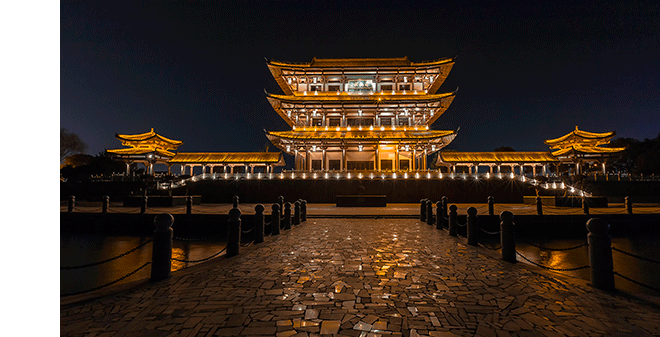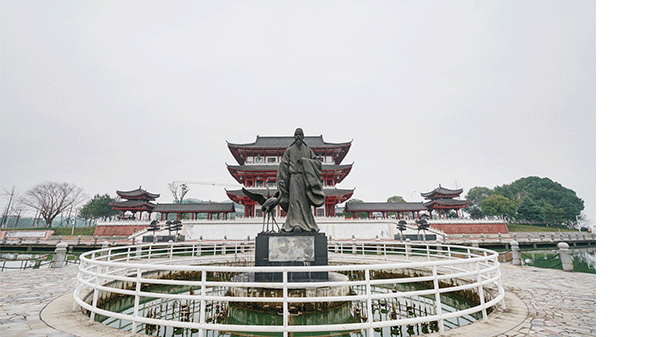 Changde is located in northwestern Hunan, and is an important node city in the Yangtze River Economic Belt. It is an important part of the Dongting Lake Ecological Economic Zone. The city has a total area of 18,200 square kilometers, has jurisdiction over 9 districts (cities) and 6 administrative districts, and has a total population of 6.2 million.
Changde is located in northwestern Hunan, and is an important node city in the Yangtze River Economic Belt. It is an important part of the Dongting Lake Ecological Economic Zone. The city has a total area of 18,200 square kilometers, has jurisdiction over 9 districts (cities) and 6 administrative districts, and has a total population of 6.2 million.
Changde is a city with talents and stories. Changde's long and profound history and culture have nurtured many outstanding talents and left many beautiful stories. The story of "Liu Hai cut off" happened in Liuye Lake, which illustrates the romance of Changde people; "Sacrifice Night Reading" tells the story of the hard work of Che Jin in Dongjin, and illustrates the hard work of Changde people; "Meng Jiangnv Crying the Great Wall" The Meng Jiangnv from China also comes from Changde, which illustrates the steadfastness of Changde people. In modern history, Song Hairen, Jiang Xunwu, Lin Xiumei, Liu Fuji, revolutionary martyrs Huang Ai, Wang Erzhuo, proletarian revolutionaries of the older generation, Lin Boqu, Shuai Mengqi, literary master Ding Ling, and historical scholar Dou Bozan successively emerged. Changde was also the city of the Chinese Anti-Japanese War, with eight thousand "Tigers" fighters, who composed the heroic tragedy of the Changde campaign.

Changde is a charming and tasteful city. Changde has good mountains, good water and good scenery, and is known as "the city in the peach garden". It is an important agricultural product production base in the country and enjoys the reputation of "the hometown of fish and rice in Dongting". The output of grain, cotton, oil, fruit, live pigs and fresh fish ranks among the highest in the province. There are more than 300 scenic spots in the city, including 9 national 4A-level scenic spots. Xanadu Taoyuan and Tao Yuanming's prototype of Taohuayuanji Taohuayuan are the 35th Dongtian and 46th Blessed Land of the Taoist Holy Land in China. They are also the "spiritual home" for thousands of years. Inner lakes in China's larger cities, Liuye Lake, the legendary land of "Liu Haijian", have a water area of 21.8 square kilometers. It rewrites the history of civilization in China and even the world. The model of Chengtou Mountain, titled "Chengtou Mountain-An Earlier City in China", is the scenery of the China Pavilion at the 2010 Shanghai World Expo. Huping Mountain, the roof of Hunan and the world's natural gene species library, Huping Mountain, is one of the 200 key ecological regions in the world.
The tea chan ancestral Jiashan Temple became famous for the abbot of the Song Dynasty, Yuan Wu Ke Qin, who edited "The First Book of Zen Doors" "Biyan Lu" and Li Zicheng's Zen Hidden Mountain. Poems, calligraphy, and paintings carved into the Chinese Changde Poetry Wall, entered the Guinness World Records, and were praised by Comrade Zhu Rongji as a "big creation."
Copyright © 2019 Hunan Dongting Pharmaceutical address:No.16, Shandong Yanlu, Changde City, Hunan Province Record number:湘ICP备20005175号-1Business license map
Technology:Competitive network